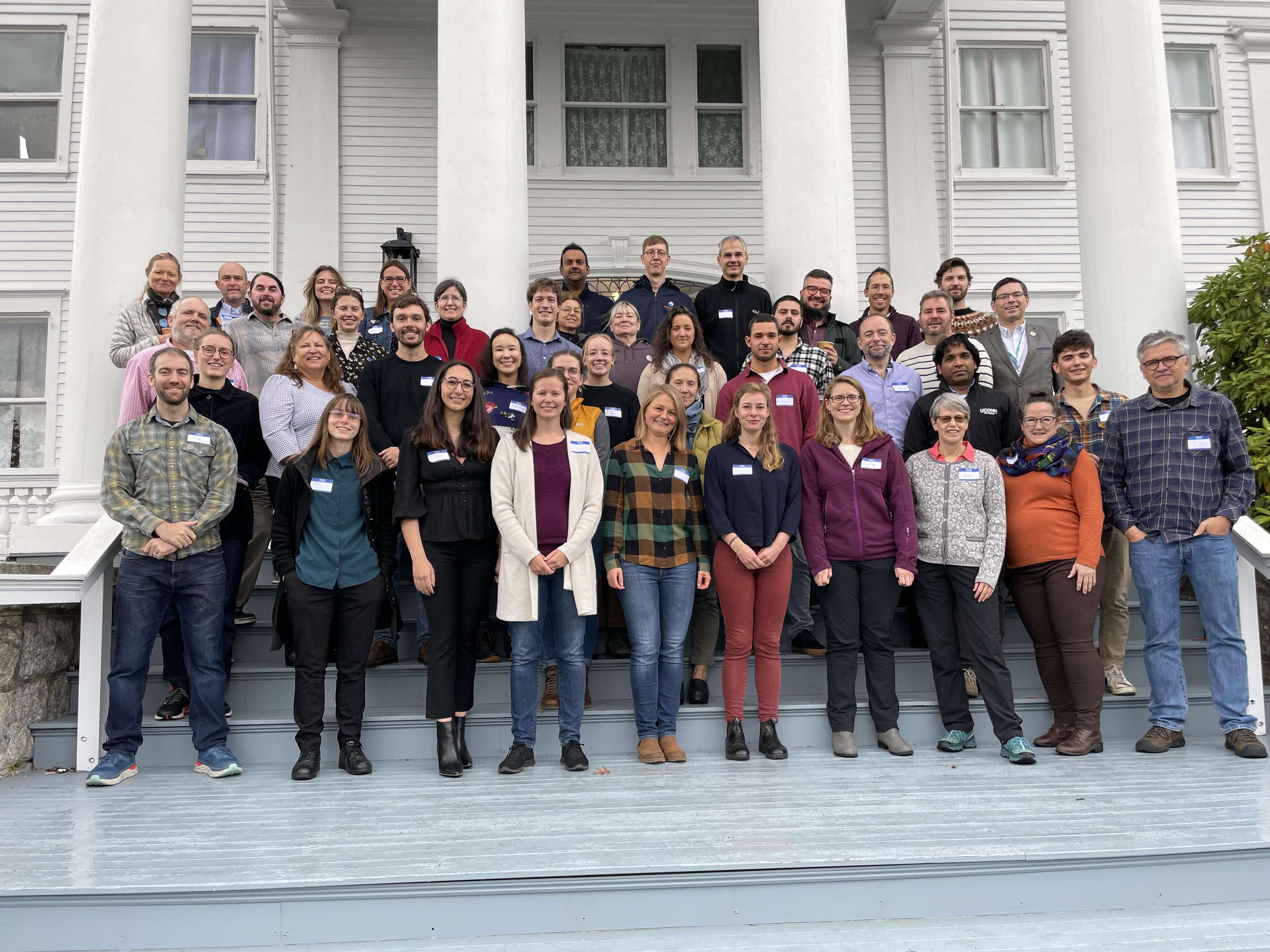International Arctic Coastal Networks connect in Connecticut
Ben Jones
Oct. 21, 2022
UAF researchers led the organization of a weeklong international Arctic Coastal Network retreat in Mystic, Connecticut, with funding from the National Science Foundation Accelerating Research through International Network-to-Network Collaborations program. The retreat ended Friday, Oct. 21, 2022.
The NSF program supports strategic linkages among U.S. research networks and complementary networks abroad that leverage research and educational resources to tackle grand research challenges that require significant coordinated international efforts.

Attendees of the international Arctic Coastal Network retreat in Connecticut.
NSF funding from the international collaborations program for the UAF-led Permafrost Coastal Systems Network provided travel support to bring together the international arctic coastal research community in Connecticut. PerCS-Net lead the organization of the retreat in collaboration with a European Space Agency-funded project, Earth Observation for Permafrost Dominated Arctic Coasts, as well as Nunataryuk, a European Union-funded project.
The Arctic Coastal Network retreat brought together 40 researchers from 21 research institutions in eight countries to focus on the unprecedented issues impacting Arctic coasts and the communities located there.
UAF researchers included Matthew Balazs, Richard Buzard, Jessica Garron, Roberta Glenn, Noelle Helder, Anne Jensen, Benjamin Jones, Chris Maio, Jana Peirce, Joy Snodgrass, Melissa Ward Jones and Victoria Wolf. They represented several UAF institutes: Institute of Northern Engineering, Geophysical Institute, International Arctic Research Center, Institute of Arctic Biology, Alaska Center for Energy and Power and the Anthropology Department.
The UAF group brought a diversity of perspectives on the issues affecting Alaska’s coasts and across the Arctic.
The Arctic Coastal Network retreat included interactive self-introductions from each attendee, a panel focused on insights and updates in the aftermath of the Merbok storm in Western Alaska, overviews from pan-Arctic coastal networks and research projects and a series of breakout discussions focused on local and indigenous observations, field studies and instrumentation, remote sensing and modeling and coastal hazard assessments. The international gathering wrapped up with a discussion of ways to better share our observations with Arctic coastal communities and aspects of coastal permafrost changes in the context of the entire permafrost region.
Permafrost coasts in the Arctic make up roughly one-third of all coasts worldwide. The pace of environmental change in the Arctic is increasing because of sea ice loss and warming permafrost, resulting in a rapidly evolving coastal system experiencing a complex series of responses.
Future Arctic coastal system dynamics will challenge conventional wisdom impacting human decision-making and adaptation planning, impacts to cultural heritage resources and communities, likely resulting in unforeseen social and environmental challenges. The effort required to realize and address the scale and complexity of future challenges is far greater than any single institution, network, or typical funding allocation is capable of fully accomplishing.
The Arctic Coastal Network retreat promoted synergy across networks to foster the next generation of students, postdoctoral scholars and early career researchers faced with the known and unknown challenges of future Arctic coastal systems.


